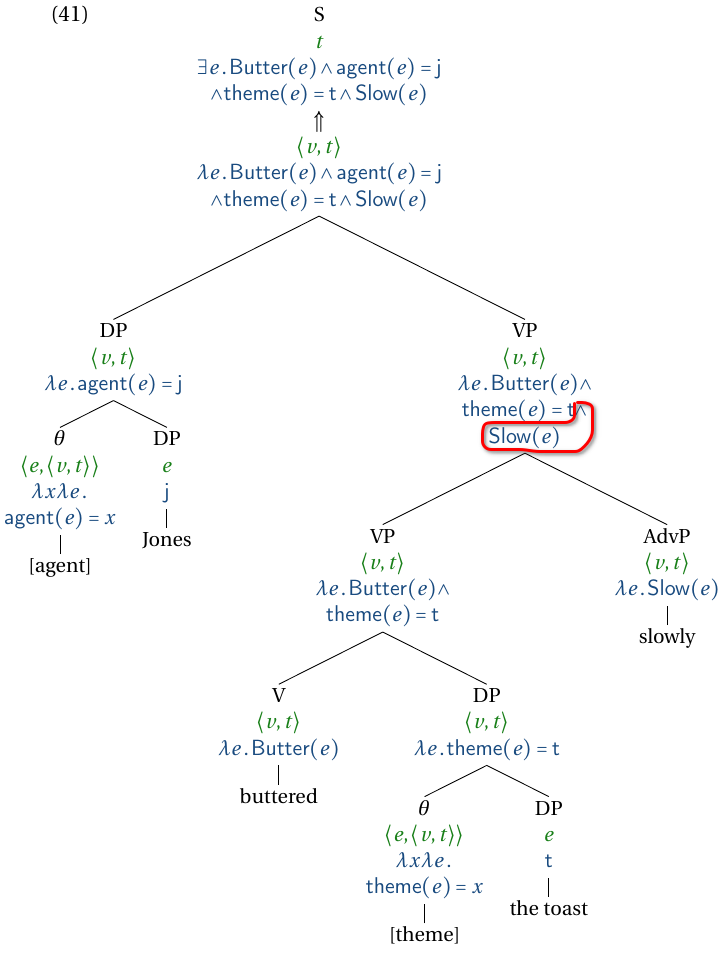Entailment is a situation in which the truth of a given sentence necessitates the truth of some related sentence. If the sentence Susan is taller than Jane is true, then we know for sure that the sentence Jane is shorter than Susan is also true. These two sentences mutually entail each other. Similarly, if the active sentence Frank bought a green bicycle is true, then we know for sure that the passive counterpart A green bicycle was bought by Frank is also true. We again have mutual entailment.
Often entailment points in one direction only. If the sentence Susan eats carrots and turnips is true, then the sentence Susan eats vegetables is also necessarily true. In this case, however, entailment is not mutual, for the truth of the sentence Susan eats vegetables does not entail the truth of the sentence Susan eats carrots and turnips.
My question has to do with entailment of the latter sort, i.e. the type that points in one direction only. Does a sentence with an adjunct entail the same sentence without the adjunct? For instance, does the truth of sentence (1) entail the truth of sentence (2)?
(1) Frank arrived on Friday.
(2) Frank arrived.
Intuitively, my answer in this case is “Yes, it does”. But now consider the next two sentences:
(3) Frank called the woman in his class.
(4) Frank called the woman.
In this case, intuition fails me. I am unsure whether the truth of sentence (3) entails the truth of sentence (4). Sentence (4) seems vague in such a way that does not allow one to reach a conclusion about potential entailment, one way or the other. Note that on Friday in (1) is an adjunct on the verb arrived, whereas in his class in (3) is an adjunct on the noun woman.
So, how should we understand the influence of adjuncts on entailment patterns?
